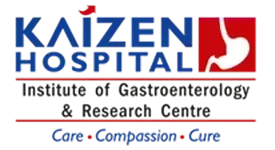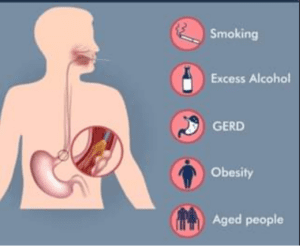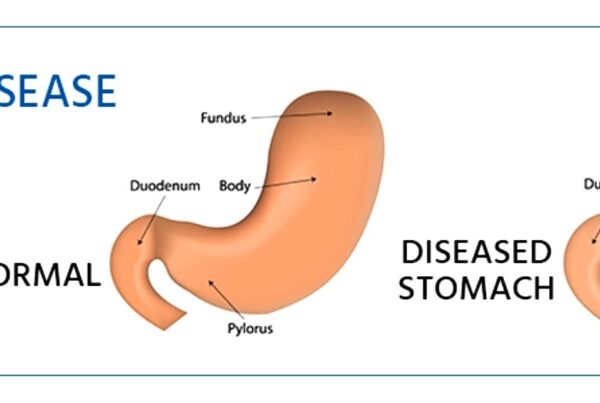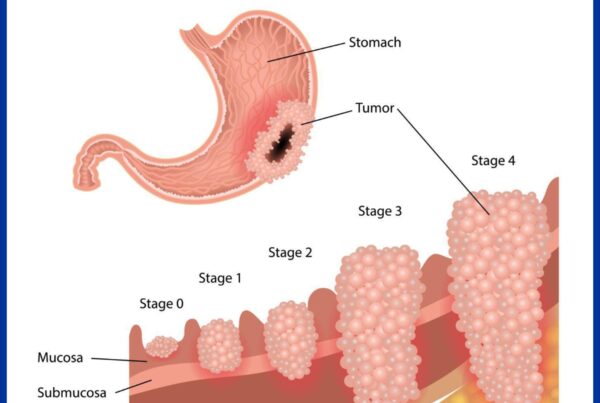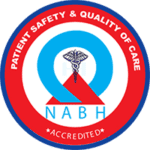April is Esophageal Cancer Awareness Month. Let’s talk about risk factors of Esophageal Cancer.
Individual’s risk of developing esophageal cancer during his or her lifetime is 0.5 percent. Five-year survival rate is approximate 20%.
Types of esophageal cancer:
- Squamous cell carcinoma, typically affects the upper and mid esophagus
- Adenocarcinoma, which occurs in the lower esophagus
Esophageal cancer may not cause any symptoms in early stage. However, as it progresses individuals can experience:
- Difficult or painful swallowing
- Weight loss
- Hoarseness
- Cough that does not go away
- Indigestion or Heartburn
- Vomiting
Because symptoms appear in advanced disease hence esophageal cancer is one of the most difficult cancers to treat.
Risk factors for esophageal cancer includes:
- Smoking
- Drinking alcohol
- Long-term gastroesophageal reflux disease (GERD)
- Barrett’s esophagus
- Obesity
- Poor nutrition
Esophageal cancer is three times more common in men compared to women.
Prevention:
- Avoid using tobacco products
- Stop consuming alcohol
- Treat obesity
- Get treated for reflux or Barrett’s esophagus
- Eating non-starchy vegetables and fruits
- Regular physical activity lowers risk
Having one or all of these risk factors does not mean that one will develop esophageal cancer and wise a versa not having risk factor does not mean that one will never develop esophageal carcinoma. Raising awareness of risk factors is the way to reduce the incidence of an esophageal cancer. Person with elevated risk should consult their doctor and get screened as early as possible.
In the case of esophageal cancer, early discovery can enhance survival and raise the likelihood of a cure. Additionally, early esophageal cancer patients now have better results and access to additional therapy options.
Author :- Dr. Mayank kumar Gurjar
MBBS, MS, M.Ch (Surgical Gastroenterology)
Kaizen Hospital
